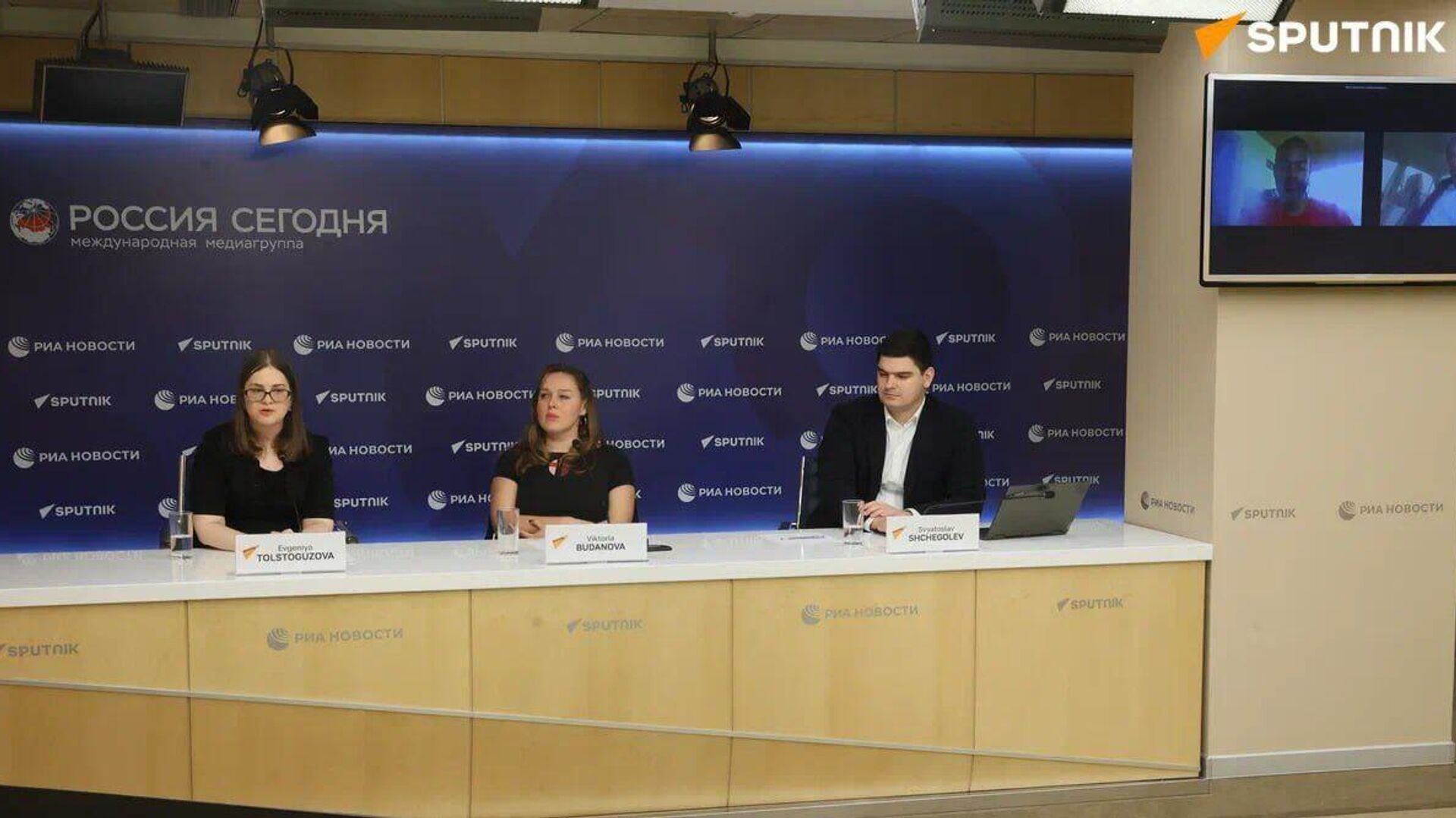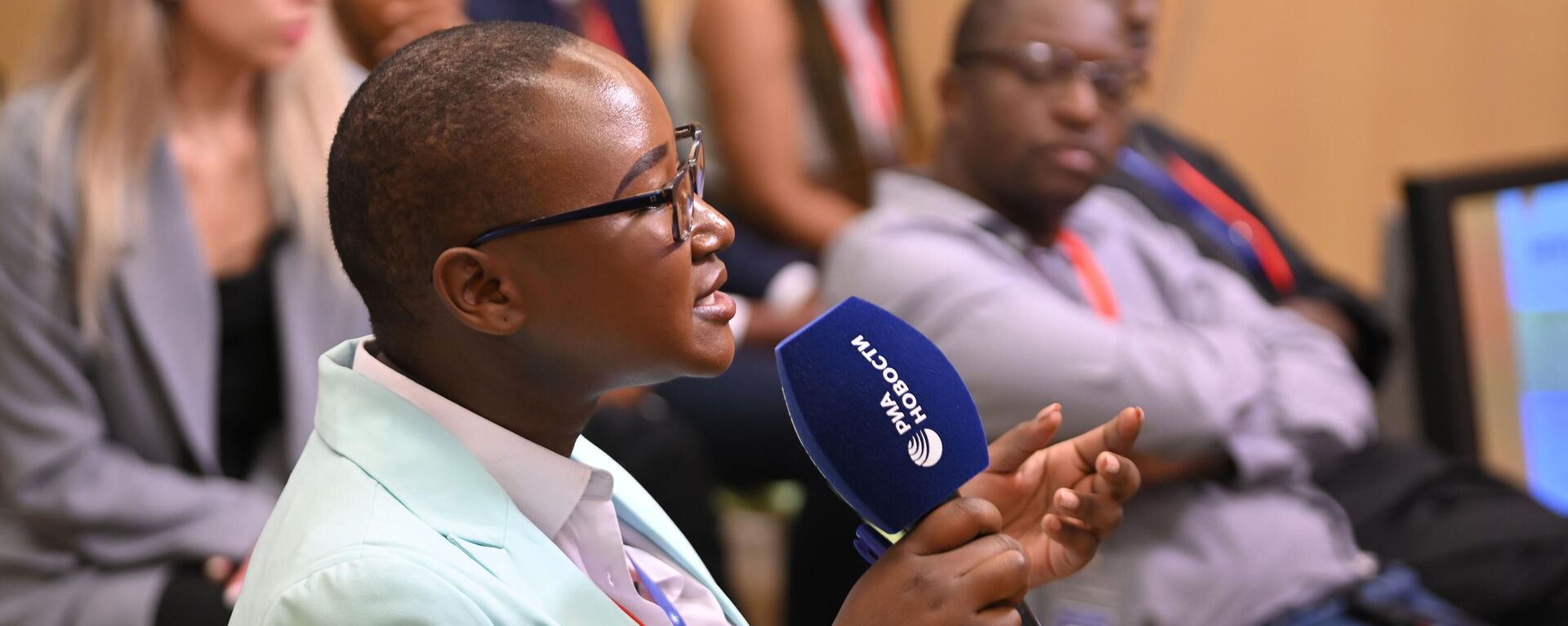Nothing but Truth: Russian, African Experts Discuss Challenges of Modern Media

© Sputnik
Subscribe
On December 20, the International Multimedia Press Center of the Rossiya Segodnya Media Group hosted an online roundtable discussion, Media Development Strategies in the 21st Century: Challenges and Prospects. Svyatoslav Shchegolev, Head of RT Africa and Viktoria Budanova, Head of Sputnik Africa, joined the video conference from Moscow.
Participants from African countries included Worku Belachew from Ethiopia, Editor-In-Chief at The Ethiopian Herald; Paul Ilado from Kenya, Head of Content at the Radio Africa Group; Awa Sowe from Gambia, Senior Communications Officer at Gambia News Agency; and Dr. Philani Mthembu from South Africa, Director of the Institute for Global Dialogue.
Worku Belachew opened the discussion by noting that though technical progress and development of social media is a blessing, there are also downsides to it.
“Today in the age of social media, we do not talk about producer-consumer relationship, because consumers are now also producers of content. Media now produces cross-platform content and the content itself has now become interactive. However, the downside of technology is spread of fake news,” he concluded.
The Head of RT Africa Svyatoslav Shchegolev also spoke about fake news.
“There are two aspects of that problem: how to deal with fakes inside the media and in general information field. Today it is much more complicated to verify information due to social media. Some media are even creating separate anti-fake departments, which might be suitable sometimes to verify, for instance, deep fakes. At the same time we are very concerned that verification initially is a basic rule that should be used by any professional journalist and when preparing a publication one should think of verifying the information first. Speaking of outside the media aspect of fake news problem, it is much more complicated because all we can do is publish verified and correct information as soon as a fake appears to counter it. But then again, some fakes are so absurd that they do not even need to be countered,” he stated.
Paul Ilado from Kenya highlighted the importance of media being trustworthy.
“It is very simple: truth, nothing but the truth. It is a best way to find trust, to build trust and to untrust. If you are bale to just stick to the straight and narrow path that allows you to build credibility overtime foster opportunity for people to look at you and see how objective you are and in the long run that is how you stay relevant and remain important,” he said.
Dr. Philani Mthembu spoke about the changing global landscape and the ways it affects work of media. He pointed out a key problem, which is limited direct flow of information between Russian and African audiences.
“Because of changing geopolitical dynamics there is already a demand in Africa for more information that is coming from Russia. It is also important that more African content is making it into Russian audiences. And platforms like RT and Sputnik are also enabling that by speaking to African experts based in Africa,” he highlighted.
Awa Sowe from Gambia News Agency noted that it is important for all media to develop global cooperation and diversify your sources.
Viktoria Budanova, Head of Sputnik Africa, also emphasized the importance of media cooperation.
“We must cooperate more in different directions be it technologically, in terms of content or people-to-people exchange,” Viktoria said.
The video conference summed up the media cooperation and reaffirmed the agreements reached during the Russia-Africa summit, which took place this summer in St. Petersburg.

